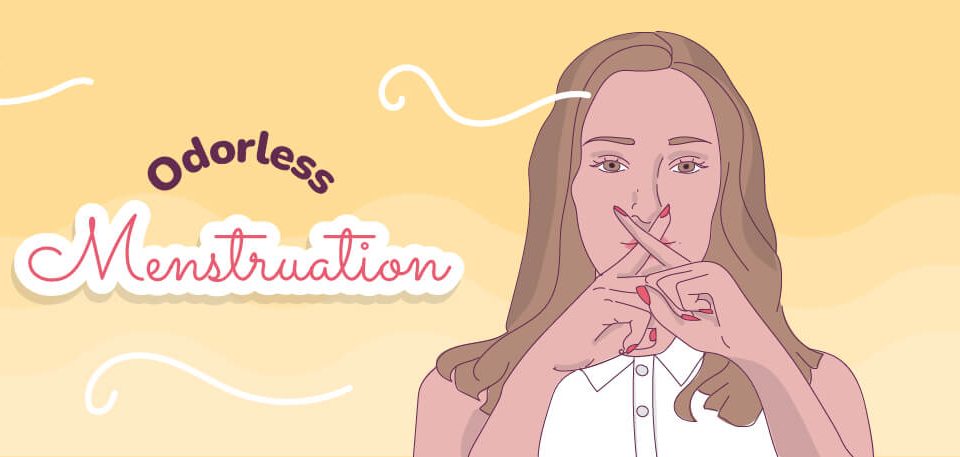 Store
StoreRECOMMENDED PRODUCT
Uva Menstrual Cup
Ultra-soft silicone for your comfort and peace of mind.
$29.99

 How to use the cup
How to use the cup- FAQ
- Blog
 Store
StoreRECOMMENDED PRODUCT
Uva Menstrual Cup
Ultra-soft silicone for your comfort and peace of mind.
$29.99

 How to use the cup
How to use the cup- FAQ
- Blog

Can girls menstruate at 9 years old?
The start of menstruation is always a changing moment in a girl’s life. Since the beginning of their period, changes are experienced in the child’s body. It is normal for the period, or menstruation, to begin between the ages of 10 and 15 years old. These are known as the common ages for a teenager’s body to develop. The question would be if menstruation is normal at 9 years old.
The answer would be yes, and it is becoming more common with this new generation. Premature, or early puberty, is when children begin to develop sexual characteristics earlier than expected. It is becoming more common around the world. Menstruation at age 9 can be one of the first signs of this stage of accelerated development. It is important to approach this issue with sensitivity and knowledge to provide appropriate guidance and support to the child.
You will also notice other changes in the child, like:
- Mood swings.
- Pimples or blackheads.
- Height growth.
- Hair growth, whether on the face or armpits.
- Weight gain.
- Breast and hip growth.
- Excessive sweating
Remember that these changes will be subtle and progressive.
Menstruation at 9 years old
Menstruation at an early age, like 9 years old, can be surprising for both the girls and their parents. This biological change marks the beginning of puberty and a series of physical and emotional changes. In this article, we will explore the causes, symptoms, and best practices to support girls starting their menstrual cycle at this young age.
What is early menstruation?
Early menstruation refers to the beginning of their period before the age of 10 years old. Every girl is unique, and development times are not the same for everyone. Menstruation at age 9 is considered early and may require medical attention to rule out any health problems.
Some factors that can influence precocious puberty include genetics, environment, and nutrition, among others. It is important to understand that, early menstruation is not a disease, but rather a sign that the body is entering a new phase of maturation.
Causes of early menstruation
The causes of menstruation at 9 years old can vary. Some studies suggest that exposure to certain chemicals in the environment, like an endocrine disruptor, may advance the age of the first period. Obesity has also been linked to precocious puberty. Because adipose tissue can influence the production of sex hormones.
In some cases, precocious puberty has no defined cause or reason. However, depending on the symptoms and how early it is, parents should consult with a doctor if they notice signs of early puberty in their children to rule out conditions like brain tumors or thyroid problems.
Management of menstruation at 9 years old
Managing and understanding menstruation, at this age, involves both physical and emotional preparation for the girl. Parents and caregivers should make sure the girl understands what is happening to her body and feels comfortable and safe talking about these changes.
It is essential to provide accurate information on menstrual hygiene, the use of sanitary products, and how to manage menstrual pain. Additionally, emotional support is key to helping girls deal with the potential emotional and psychological effects of early menstruation.
Some of the factors to learn are:
- The correct placement of menstrual hygiene products.
- How often should it be changed?
- Where they can feel pain.
- How to relieve pain.
- What to avoid when having your period.
- Have products on hand, such as a jacket, in case blood gets on your clothing.
There is a wide variety of things to learn to have menstrual health, which becomes difficult for a girl to understand without being guided.
Education and emotional support
Information about their period should be clear and adapted to the girl’s age. Parents can use educational resources and books, or even seek the help of health professionals, to communicate this information effectively. Emotional support involves being available to answer questions, offer comfort, and encourage the expression of feelings.
Girls must know that menstruation is a natural process and that they should not feel embarrassed or scared by it. Trust and comfort in discussing these topics can strengthen the relationship between fathers and daughters and promote a positive attitude toward body changes.
Tips for parents
The following tips can help parents manage menstruation:
- Be adequately informed about puberty and menstruation to be able to guide and support the child.
- Create an environment of trust and open communication so that the child feels comfortable sharing her experiences and doubts.
- Select menstrual hygiene products appropriate for the girl’s age and size, and teach her how to use them correctly.
- Consult a pediatrician or pediatric endocrinologist if there are concerns about precocious puberty or early menstruation.
- Support the girl emotionally, and make sure she understands that what she is experiencing is normal and that she is not alone.
Importance of medical consultation
A visit to the doctor is important to rule out any health problems and to get professional guidance on how to manage early menstruation. The doctor may recommend tests to evaluate the girl’s hormonal and physical development and suggest strategies for dealing with any challenges that may arise.
Medical follow up can also offer peace of mind to the parents. And provide an action plan to ensure the child’s healthy development.
Steps to follow
Menstruation at 9 years old requires attention and understanding. Through education, support, and proper guidance, girls can navigate their period with confidence and security. Parents play a fundamental role in providing the environment, education, and resources necessary for the girl to feel supported and prepared for the changes she is experiencing in her body.
Remember to educate your kids about it. What changes she may be experiencing, what products she should use, and the anatomy and understanding of her body.











